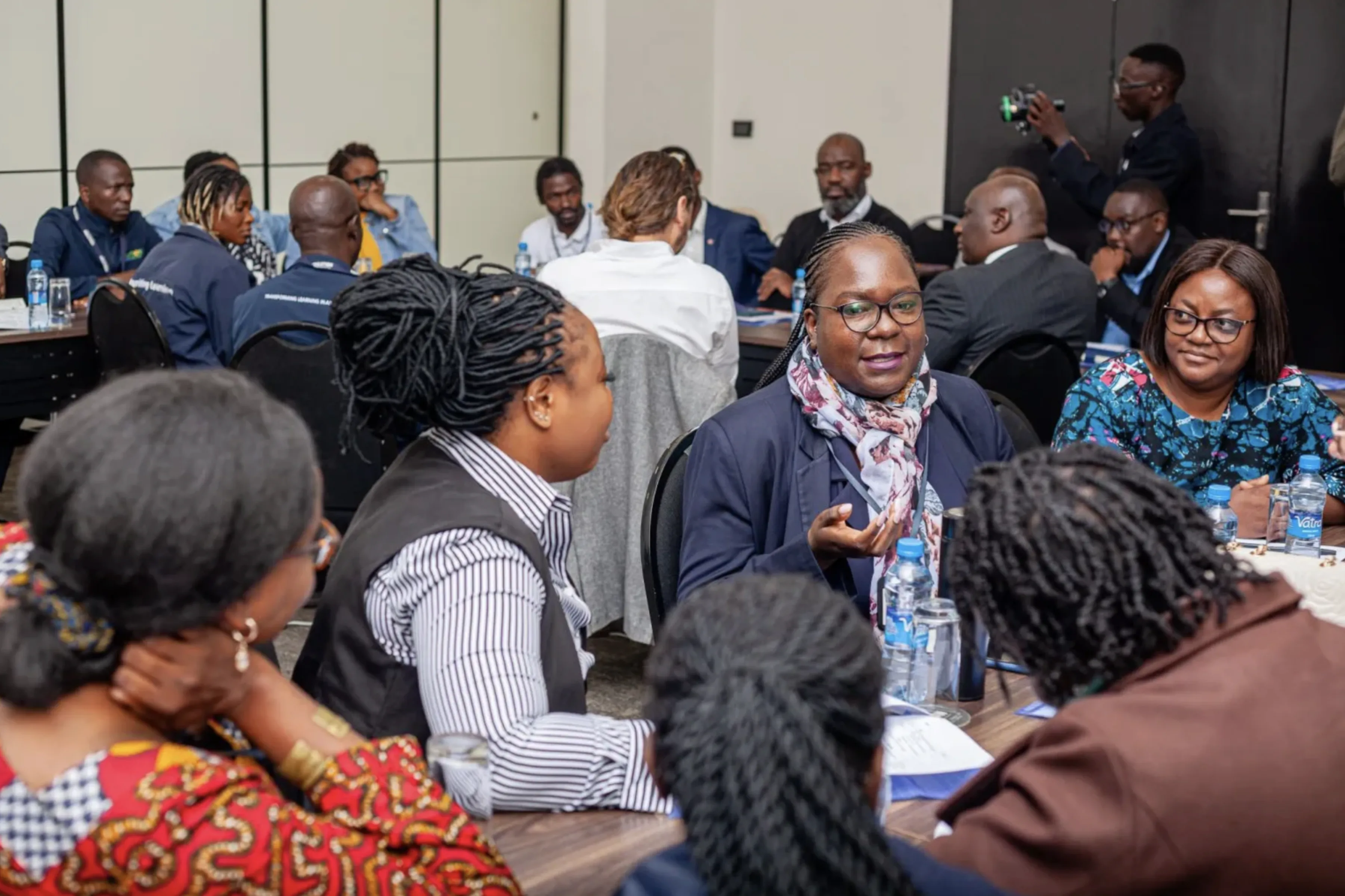SkillsHub: Getting our pioneering project off the ground
Our new SkillsHub initiative will be a multifunctional training facility, delivering vocational training programs tailored to in-demand skills and services in Zambia’s modern mixed economy, offering fast access to sustainable livelihoods for marginalized youth. When fully ramped up, the project will support 880 clients each year.
In order to kick-start the development of this groundbreaking initiative Pestalozzi Zambia organised a roundtable with various stakeholders. This is a report about the most important outcomes, compiled by Pestalozzi Zambia CEO Priscilla Mpundu.
Introduction
Pestalozzi International offers child-centred education to disadvantaged children in the Global South, supporting economic growth and social mobility. Recognizing the uniqueness of every child’s fullest potential, we educate beyond the classroom to develop future-oriented vocational skills and nurture emotional, social and mental well-being. This education for life creates self-reliant adults with the moral confidence to contribute meaningfully to their communities and as global citizens.
Our new SkillsHub initiative will be a multifunctional training facility, delivering vocational training programs tailored to in-demand skills and services in Zambia’s modern mixed economy, offering fast access to sustainable livelihoods for marginalized youth. When fully ramped up, the project will support 880 clients each year.
We are commencing construction this year, and are working with local partners and stakeholders to design the skills training programs matched to the local economy needs.
On the 10th of July 2024 we organized a roundtable discussion with sector experts from ICT/Digital, Media & Photography, Agriculture, Tourism & Hospitality, with the ambition of gaining input into the design of programs and also partnering with us by providing opportunities for internships and placement.
Also invited to the roundtable were the Ministry of Science and Vocational Training and the authorities TEVETA, however they were not able to make it and asked our moderator to answer on their behalf and feedback to them afterwards.
Presenting the vision and objectives of the Pestalozzi International SkillsHub
At the beginning of the event we heard from our Pestalozzi International UK, Head of Philanthropy, Suzanne Davis in a video telling us about the problem that Pestalozzi International has been determined to address from its inception. She highlighted the facts on the ground and introduced us to the world of Pestalozzi and what it has achieved to date. She finally introduced us to the SkillsHub initiative and its projected outcomes in the long term.
Board Chairperson, Pestalozzi International UK, Ken Greatbatch spoke to the audience about the history and values of Pestalozzi International.
Board Chairman, Pestalozzi Zambia, Brian Sitamulaho, asked the audience to “become impatient” for this agenda to be achieved.
Hearing views from vocational skills trainers and experts in this field
Our Moderator for the day was Dr. Sarah Kaulule, whose profile includes a background in education, vocational training having served at the Ministry of Education as well as the accreditation body TEVETA.
She talked us through the processes and procedures involved in getting accreditation for skills training, some of the changes in the national educational framework and aspects around vocation skills education that are enshrined in the Education ACT and Teveta ACT.
Exploring opportunities for collaboration and partnerships
The guests invited to the roundtable were identified as leaders in their various sectors and from organizations working with young people. They were invited to be open and candid about some of the challenges of youth employment and practical day to day issues they were dealing with involving their staff. In smaller groups organized by sector including staff, and board members from PZCT, we held a breakout session in which attendees were asked to discuss according to their area of expertise and share their thoughts.
Summary of feedback and suggestions from industry leaders to ensure the program meets the highest standards and addresses the real needs of employers in the local business community.
Agriculture – How to create a program that addresses from production to market (Farm to Fork).
According to the discussions, it was revealed that the government (GRZ) has been hosting agriculture groups and making efforts to partner with the market.
It was highlighted that a Needs Assessment was key and should be conducted in order to identify the courses that would be relevant to the target group so as to fill the gaps in industry.
Some suggestions on what should be included in the various courses:
- Value addition in agriculture like peanut butter processing, smoked chickens – often programs focus on production but leave out getting the produce to market.
- Identifying the linkages, Zamseed have been facilitating demo plots within Communities
- Increasing motivation and benefits from financing and partnership through Out grower schemes.
- Ensuring there are farm visits for firsthand experience sharing and an opportunity to learn by sight.
- Management of the whole supply chain to be incorporated in the training.
- Co-operatives formation and government aid through Constituency Development Fund (CDF).
- The need for climate smart agriculture training.
- Demonstration plots and conservation farming using local inputs motivates the learners.
- Beyond the 18 months course, ensure there is continuation in learning like CPD and after training support.
- The need for higher level learners as management trainees – even skills like driving as missing from the youth.
IT/Media & Digital- ICT Entrepreneurs and need for hubs to grow ideas – from idea to implementation.
- How to collaborate with other people? There is the need to share skills and roles, but what is happening is that one person does everything, something to include in the soft skills training, the importance of collaboration.
- Understanding learning materials. This is difficult at times because the content in the school textbook is very foreign and there is a need for localized content that learners can easily relate to.
- There are two groups of individuals after learning, we have those that seek employment and those who seek to be self-employed – their need is help with practical setting up a business, costing their services, financial management, compliance with statutory bodies etc.
- Skills like coding do not require a degree, the industry is growing fast and the need for software developers is very high.
- Critical thinking is a crucial skill to gain in order to be able to solve problems and collaborate with each other so that they work as a team. The lack of teamwork and working as part of a group – project is a constant challenge in the industry.
- Learning problem solving, the service is customer centric and not one size fits all – training in ICT/Digital skills should use hack-a-thons to get the learners used to solving problems.
Hospitality & Beauty – Some of the challenges faced In the industry and how we can ramp up excellent service.
- Lack of basic skills e.g writing, numeracy was confirmed.
- Need for upskilling and relevance of prior learning – Recognition of Prior Learning (RPL) was a good starting point but few opportunities to upgrade certificates.
- New syllabus two tier system – how does TEVETA accommodate and upgrade.
- Need for shared stories e.g. for the hub messaging.
- Mentorship program to boost the confidence of the students – the industry is deemed a last option or choice and students come with low morale, little pride in their work in hotels etc. Need for promoting service-based work. Mentorship to motivate the students before they start the course. Hospitality is looked down on in so many angles.
- Upgrading to become trainers and master craftsmen, ensuring plenty of access to equipment and teaching materials.
- Disadvantaged youth from non-formal training perform better during internship than those coming from formal institutions. During placement a token to companies and farms that engage our students is expected.
Conclusion and takeaways for the SkillsHub
The roundtable discussion proved to be a valuable platform for exchanging ideas and exploring different perspectives on how to best structure and implement the Pestalozzi SkillsHub innovation.
The diverse insights contributed by participants underscored the importance of collaborative efforts in addressing the issue of unemployment among the youth as well as unearthing the importance of continuous Learning and development.
The need to embed in our soft skills program – working in teams, collaborating with others, problem solving, critical thinking.
The need for practical demonstration plots in agriculture, hack-a-thons in ICT/Digital and placements in tourism and hospitality.
Management traineeships pose an opportunity for Pestalozzi International scholars and Alumni that have not yet undertaken tertiary training.
Also the lack of upgrading from the TEVET system to academic system, which is the basic standard for most recruiters. So a well-trained craftsperson will not have an academic qualification that allows them access to certain jobs, provision for conversion is possible in the TEVET system but rarely being conducted.
Our moderator took note of issues that she could address with the authority TEVETA as part of her feedback on the roundtable to them.
Attendees
- Moderator: Dr. Sarah Kalulule
- Bongo Hive Technology – Simunza Muyangana
- ZPOS – Vernon Ushibantu
- Code Savanna – Dabwitso Mweemba / PCZ Alumni
- Multichoice Talent Factory – Mpimpa Mwenya, Banji Moyo
- Chalimbana University – Julian Mwanakulanga
- Open Window University – Janus Boshoff
- Edulution – Mulenga Mwamba, Joseph Kumwenda, Davies Kabo
- Pestalozzi Education Centre – Bamidele Akinbo
- Natural Resources Dev College – Mr. Melon Mulamfu
- Impulse Africa – Johnson Tembo, Chad Situmba,
- Zamseed – Kasaija Banage, Elvin Banda
- Taties Studio & Academy – Tatiana Mulenga
- Family Legacy – Jackson Changala, Jim Evans, Tony Njamba
- Kalikiliki Community Centre – Stanford Mudenda
- Sarovar Hotel – Bwalya Sichangwa
Pestalozzi Zambia
- Chairman UK – Ken Greatbatch
- Chairman Zambia – Brian Sitamulaho
- CEO – Priscilla Mpundu
- Board Member – Muyunda Katundu
- Board Member – Don Macdonald
- Pestalozzi Children’s Trust – Clarence Mwami
- Pestalozzi Children’s Trust – Mwinji Nachembe
- Photographer – Terrence Sampa
- IT Support – Emmanuel Mulenga, Gift
- Event Coordinator & PR – Lucy Thompson Siwale


